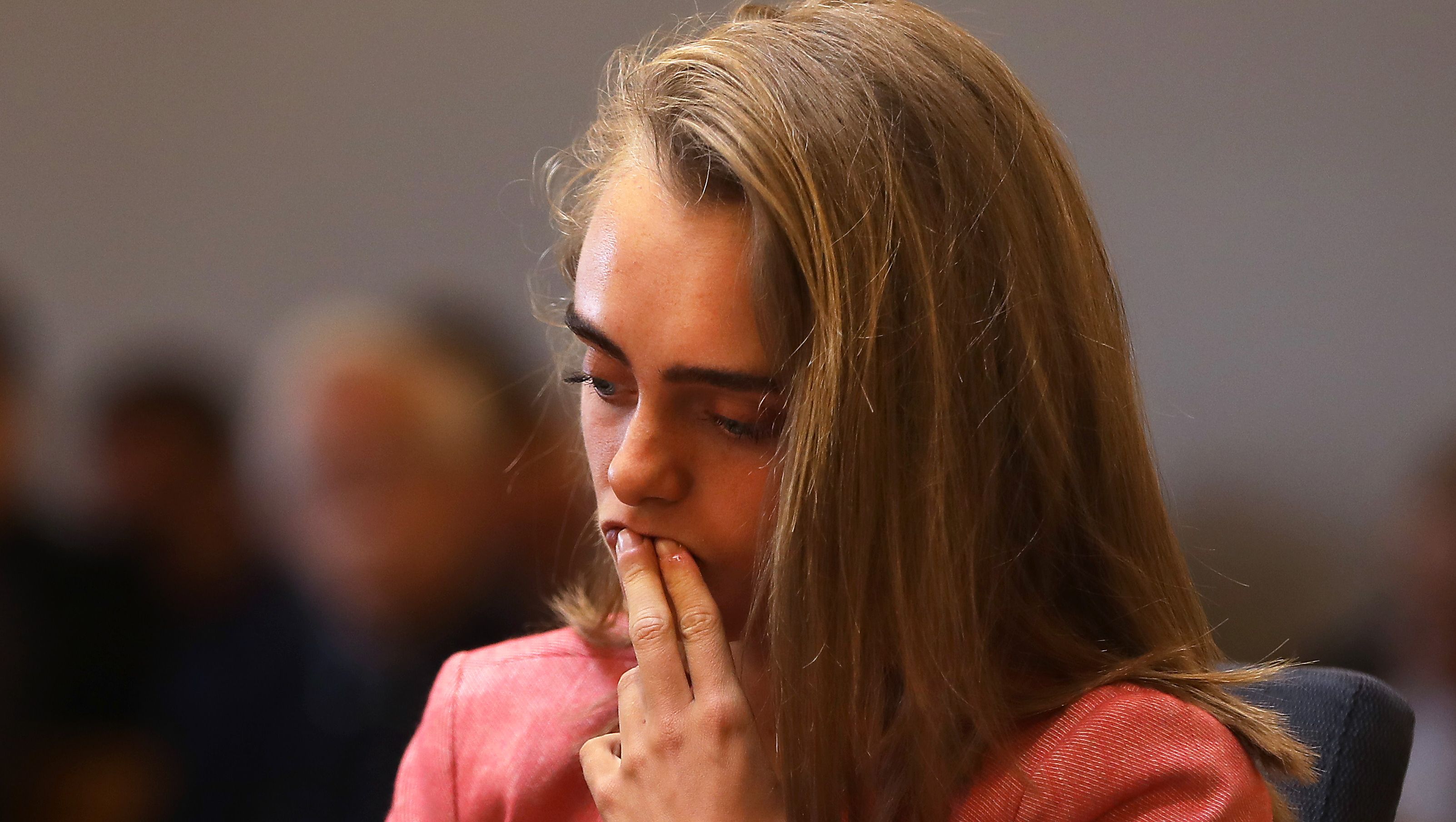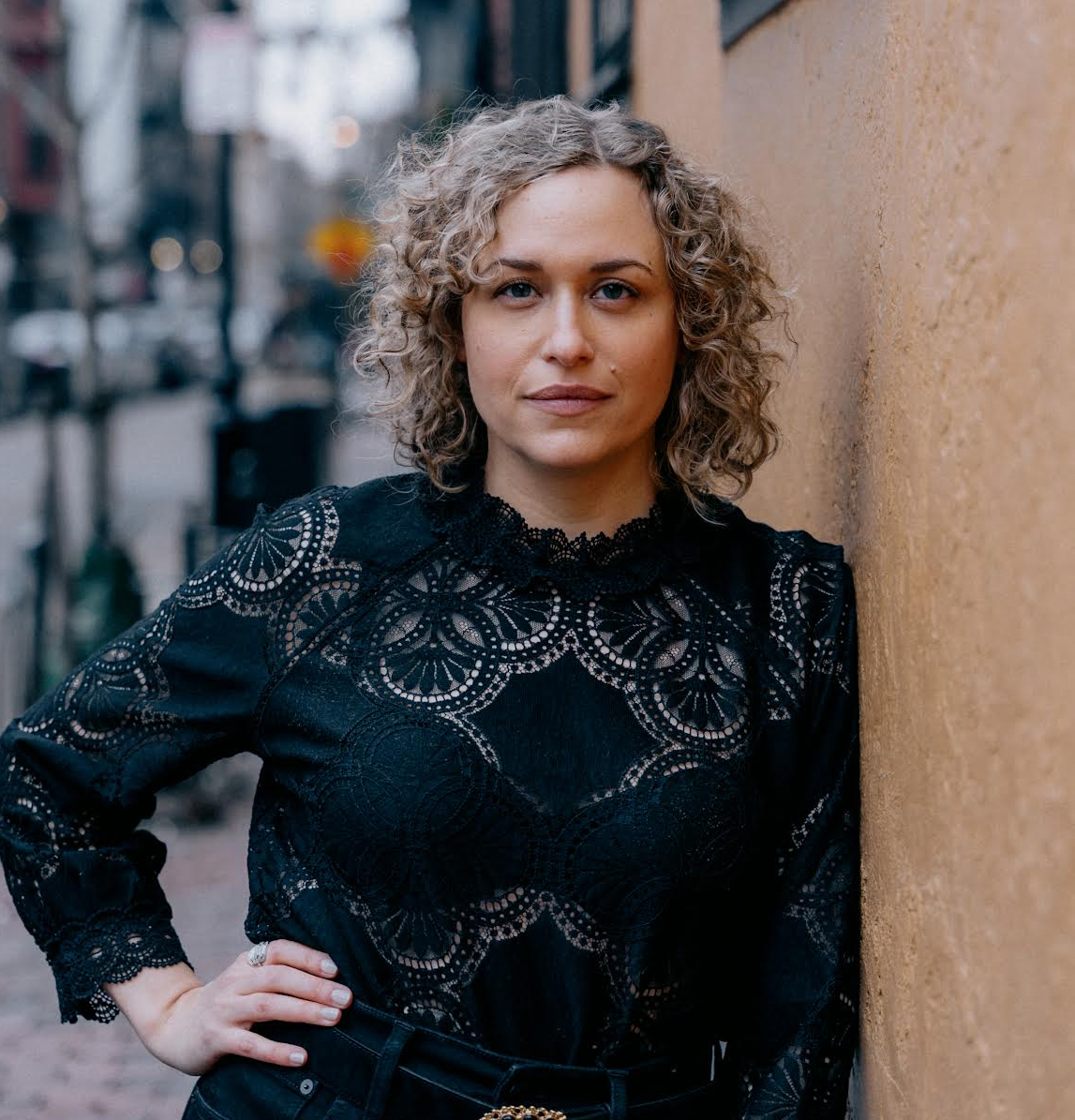Why Wasn't Michelle Carter Found Guilty of Murder, Rather Than Involuntary Manslaughter?
Michelle Carter wasn't convicted of murder, but instead the involuntary manslaughter of Conrad Roy III. The nuanced distinction is important.


Erin Lee Carr's documentary I Love You, Now Die, now airing on HBO, attempts to go behind the scenes on a complex case—the trial against Michelle Carter, who was convicted of the involuntary manslaughter of her her boyfriend, Conrad Roy III, who she encouraged to kill himself. Part of the reason the case garnered so much attention, besides the obvious horror of the death of a young person and the horrifying details that led to it, is because the case, as CNN put it, "could set legal precedent for whether it's a crime to tell someone to commit suicide." But the logic that led to the decision is highly nuanced. And it's worth noting that Carter wasn't convicted of murder but involuntary manslaughter, and the distinction is important to understanding the case.
CONTENT WARNING: The below story contains detailed descriptions of a case involving death by suicide. This content may be triggering for some readers.
In essence, Judge Lawrence Moniz's decision determines that Carter did not directly kill Roy, and that even her encouraging and egging him on did not constitute a guilty verdict of involuntary manslaughter (a.k.a. negligence that results in a person's death). At the exact moment Carter spoke to Roy on the phone, allegedly telling him to get back in the car when he expressed doubts about killing himself, the judge ruled that she essentially neglected her duty to help prevent his death. So the ruling states that Carter didn't cause his death, exactly, which would have potentially led to a charge of murder, but she didn't stop his death at a critical moment when she could have—according to the case's final ruling.
It's a part of the text message record that Carter asked Roy repeatedly about his actions and encouraged him to move forward with the plan throughout the day of his death. According to Carr's documentary, there is no text message in which Carter encourages Roy to get back in the car—only a text message she sent a friend some time later in which Carter claims she told Roy to get back in the car.

Furthermore, Roy spoke about and act on suicide attempts in the past. For some time during their relationship, as outlined in the documentary, Carter encouraged Roy not to hurt himself, but eventually stopped. Carter's defense, specifically psychiatrist Dr. Peter Breggin, claimed that Carter may have believed that she was "helping" Roy, since he seemed determined to end his own life (from the admittedly biased perspective of Carter, a young person who was also suffering under the weight of mental health struggles). The defense spoke about Roy's actions in the past and argued that though Carter's actions were not defensible, they did not amount to homicide.
Carter never took the stand in her defense, so she never answered questions publicly about the events leading up to Roy's death. Thus, it would be impossible to presume exact intent unless one heard it directly from her. We can't know whether Carter taking the stand would have helped the judge understand her perspective or make her actions less clear—so, without context, the ruling focused only on the presumed order from Carter for Roy to get back in the car.
If you’re thinking about suicide, are worried about a friend or loved one, or would like emotional support, the Lifeline network is available 24/7 across the United States at 1-800-273-8255.
Get exclusive access to fashion and beauty trends, hot-off-the-press celebrity news, and more.

Katherine’s a contributing syndications editor at Marie Claire who covers fashion, culture, and lifestyle. In her role, she writes stories that are syndicated by MSN and other outlets. She’s been a full-time freelancer for over a decade and has had roles with Cosmopolitan (where she covered lifestyle, culture, and fashion SEO content) and Bustle (where she was their movies and culture writer). She has bylines in New York Times, Parents, InStyle, Refinery29, and elsewhere. Her work has also been syndicated by ELLE, Harper’s Bazaar, Seventeen, Good Housekeeping, and Women’s Health, among others. In addition to her stories reaching millions of readers, content she's written and edited has qualified for a Bell Ringer Award and received a Communicator Award.
Katherine has a BA in English and art history from the University of Notre Dame and an MA in art business from the Sotheby's Institute of Art (with a focus on marketing/communications). She covers a wide breadth of topics: she's written about how to find the very best petite jeans, how sustainable travel has found its footing on Instagram, and what it's like to be a professional advice-giver in the modern world. Her personal essays have run the gamut from learning to dress as a queer woman to navigating food allergies as a mom. She also has deep knowledge of SEO/EATT, affiliate revenue, commerce, and social media; she regularly edits the work of other writers. She speaks at writing-related events and podcasts about freelancing and journalism, mentors students and other new writers, and consults on coursework. Currently, Katherine lives in Boston with her husband and two kids, and you can follow her on Instagram. If you're wondering about her last name, it’s “I go to dinner,” not “Her huge ego,” but she responds to both.